Can’t we just use shower panels?
One of the many questions we get asked; “isn’t it easier and cheaper to use shower panels?” Well, maybe, sometimes, but both options have their merits and personally we think tiles have more of them. Most homeowners and interior designers also prefer tiles due to their aesthetic, durability, and the ability to get creative. Let us explain the reasons why tiles are often considered a better choice for bathrooms than shower panels.
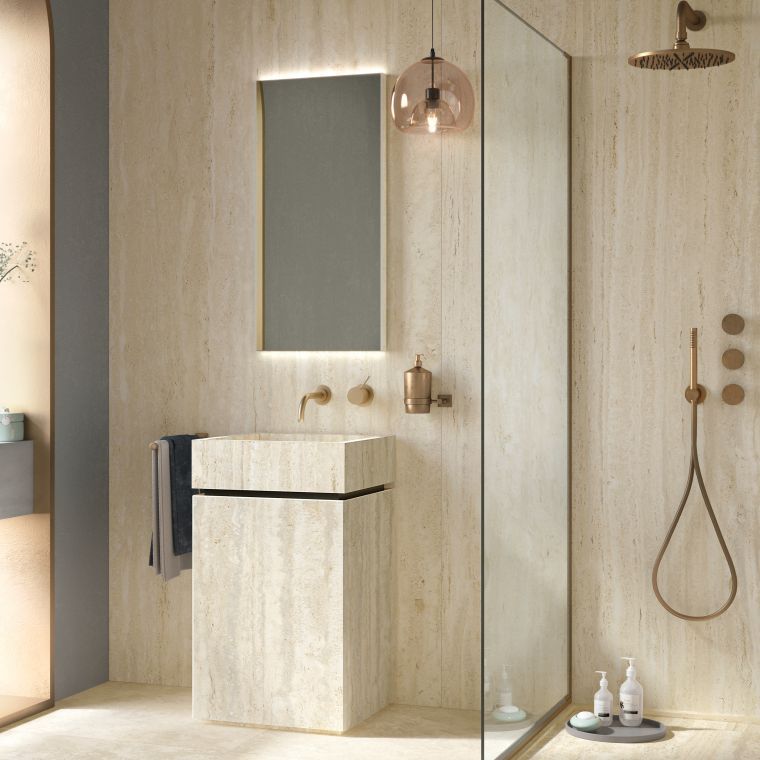

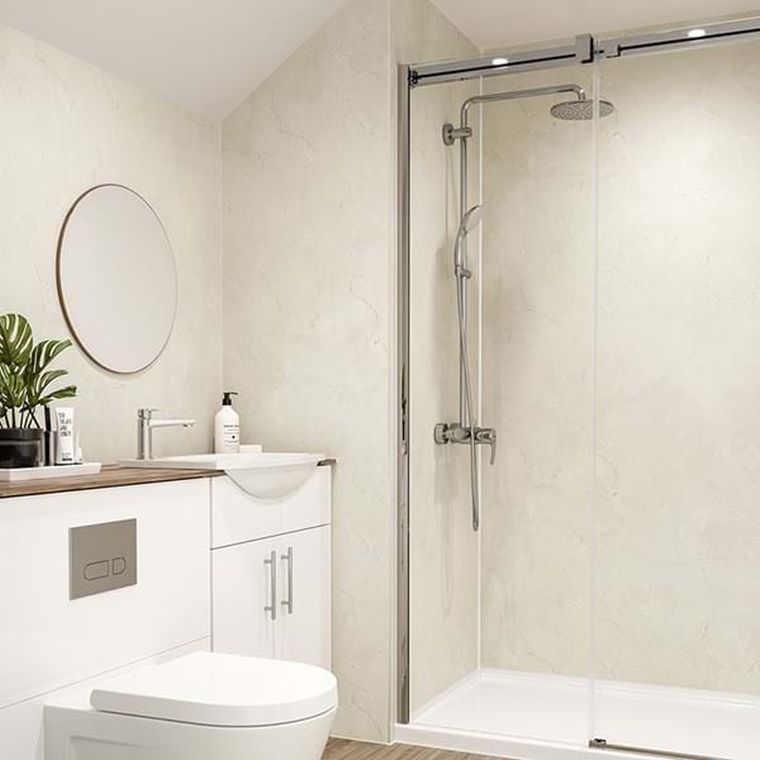
Aesthetic Versatility
Tiles offer a wide range of design possibilities for any home. They come in various materials, shapes, colours, textures, and finishes, giving homeowners the freedom to create a customized and unique look. Whether you prefer a sleek, modern bathroom with large, glossy tiles or a vintage look with intricate mosaic designs, tiles provide endless creative options.
Tiles allow for intricate patterns, different grout colours, and feature walls. They can be arranged in various layouts, such as herringbone or chevron, adding visual interest that shower panels cannot easily replicate.
In contrast, shower panels, while available in different finishes and colours, generally have a more limited range of design options and are nowhere near as realistic. Panels tend to look more uniform and are often chosen for simplicity rather than for artistic flair.
Durability and Longevity
Tiles, particularly ceramic or porcelain, are known for their durability. They are resistant to moisture, scratches, and stains, making them ideal for the high-humidity environment of a bathroom. Properly installed tiles, with good-quality grout and sealant, can last for decades with minimal maintenance.
Because tiles are non-porous, they don’t absorb water and are less likely to suffer from water damage. The grout between tiles can also be sealed with products, such as ‘Grout and Tile Protector‘ by LTP, to prevent moisture from penetrating, further protecting the walls underneath.
When installed correctly, tiles can easily outlast most shower panels, which may begin to show signs of wear and tear after several years. Panels, especially low-cost options, may be prone to discoloration, warping, or cracking over time due to exposure to heat and moisture. While shower panels are often marketed as low-maintenance, they are typically less durable than tiles in the long term, particularly if they are made from cheaper materials like acrylic or PVC.
Resale Value of a Property
A tiled bathroom is often seen as a premium feature in a home, and why would it not be? You can create a perfectly, beautiful haven to relax and unwind in. When it comes to selling a property, a well-designed, tiled bathroom can be a significant selling point, adding to the overall value of the home. The luxurious feel and the perception of quality that tiles bring can make a bathroom more appealing to potential buyers. High-quality tiles, especially like marble or stone effect, give a bathroom a timeless and luxurious feel that most shower panels can’t match. Shower panels, on the other hand, are often seen as a cost-saving alternative. While they are functional and can look sleek, they may not add as much value to the home in the eyes of buyers.
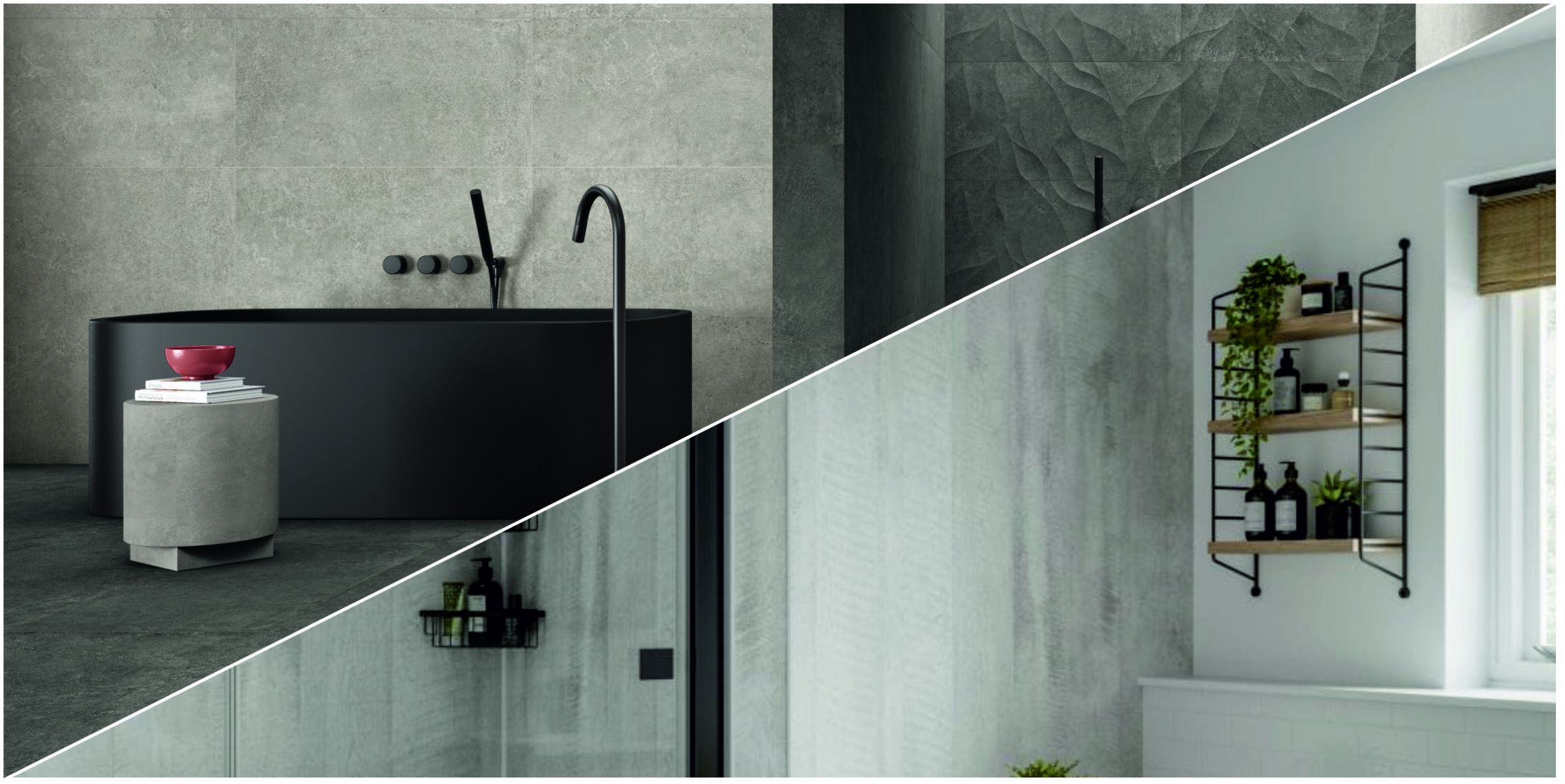
Repair and Maintenance
Generally speaking, tiles are easier to repair in case of damage, as long as you have kept some spares and they’re from the same batch. If a single tile cracks or becomes damaged, it can be replaced without affecting the surrounding tiles. In theory, you don’t need to replace an entire wall or large section if only one tile is damaged. Shower panels, however, may require replacing a large section or the entire panel if a portion is cracked or damaged.
Tiles are easily cleaned; however, grout can be a bit more of a laborious job, but as we mentioned earlier, there are products you can buy to protect it. In contrast, shower panels require little maintenance but are more difficult to repair. Once a panel cracks or is damaged, it often needs to be replaced entirely. Additionally, panels can be prone to developing mould or mildew behind the surface if not sealed properly.
Heat Resistance
Tiles are inherently more resistant to heat than many shower panels, particularly those made from plastic or acrylic. Bathrooms, especially those with underfloor heating, can benefit from tiles' ability to withstand high temperatures without warping or melting. Shower panels, especially lower-end ones, can be susceptible to heat damage over time. Hot showers and fluctuating bathroom temperatures may cause the material to expand, leading to potential warping or separation from the walls.
Environmental Considerations
Ceramic and porcelain tiles are often more environmentally friendly than some types of shower panels, especially those made from plastic. Tiles are typically made from natural materials, and some manufacturers offer eco-friendly options that use recycled materials. This is something we are really keen on and there’s a big push within the industry on companies becoming more environmentally. You can read more on or take of Sustainability here. Shower panels, particularly those made from PVC or acrylic, can have a higher environmental impact due to their production process and potential to release harmful chemicals. Furthermore, plastic panels are less biodegradable, making them less eco-friendly when it comes time for disposal.
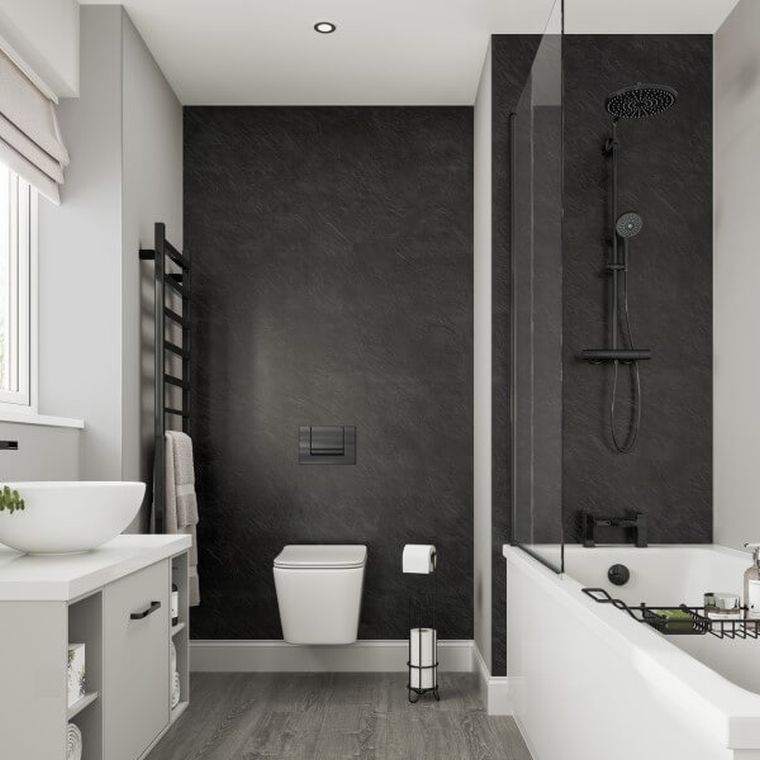
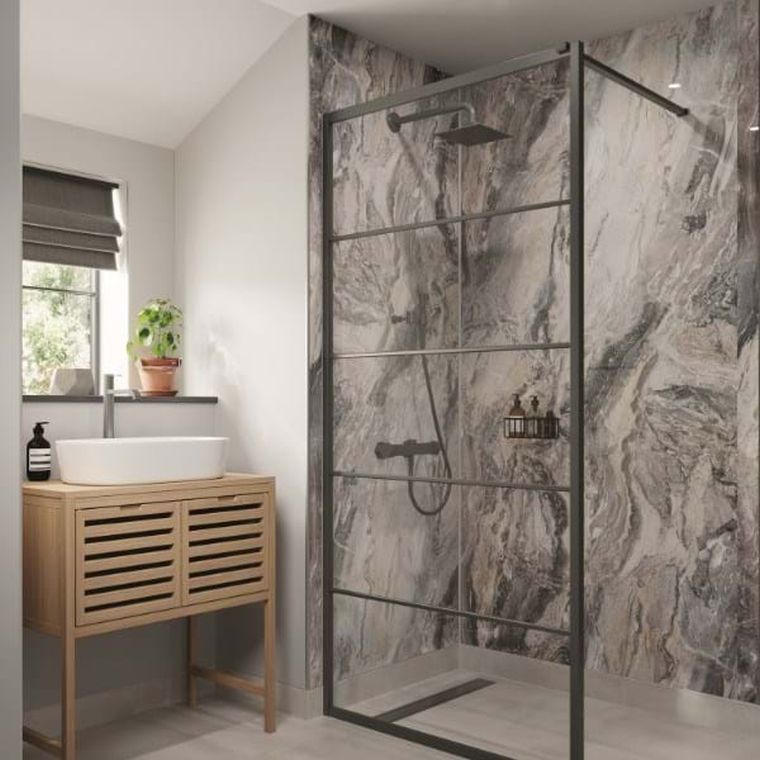
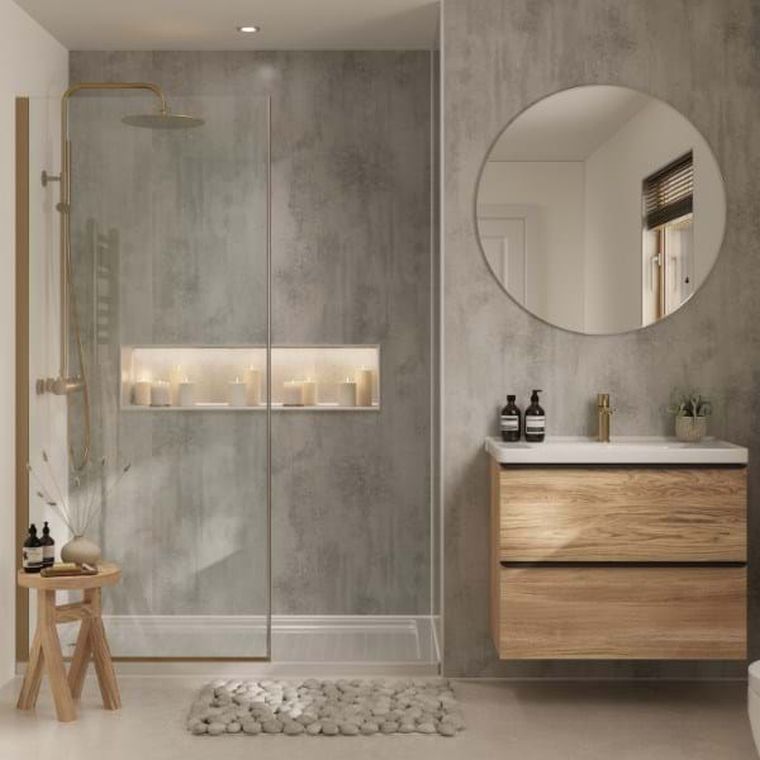
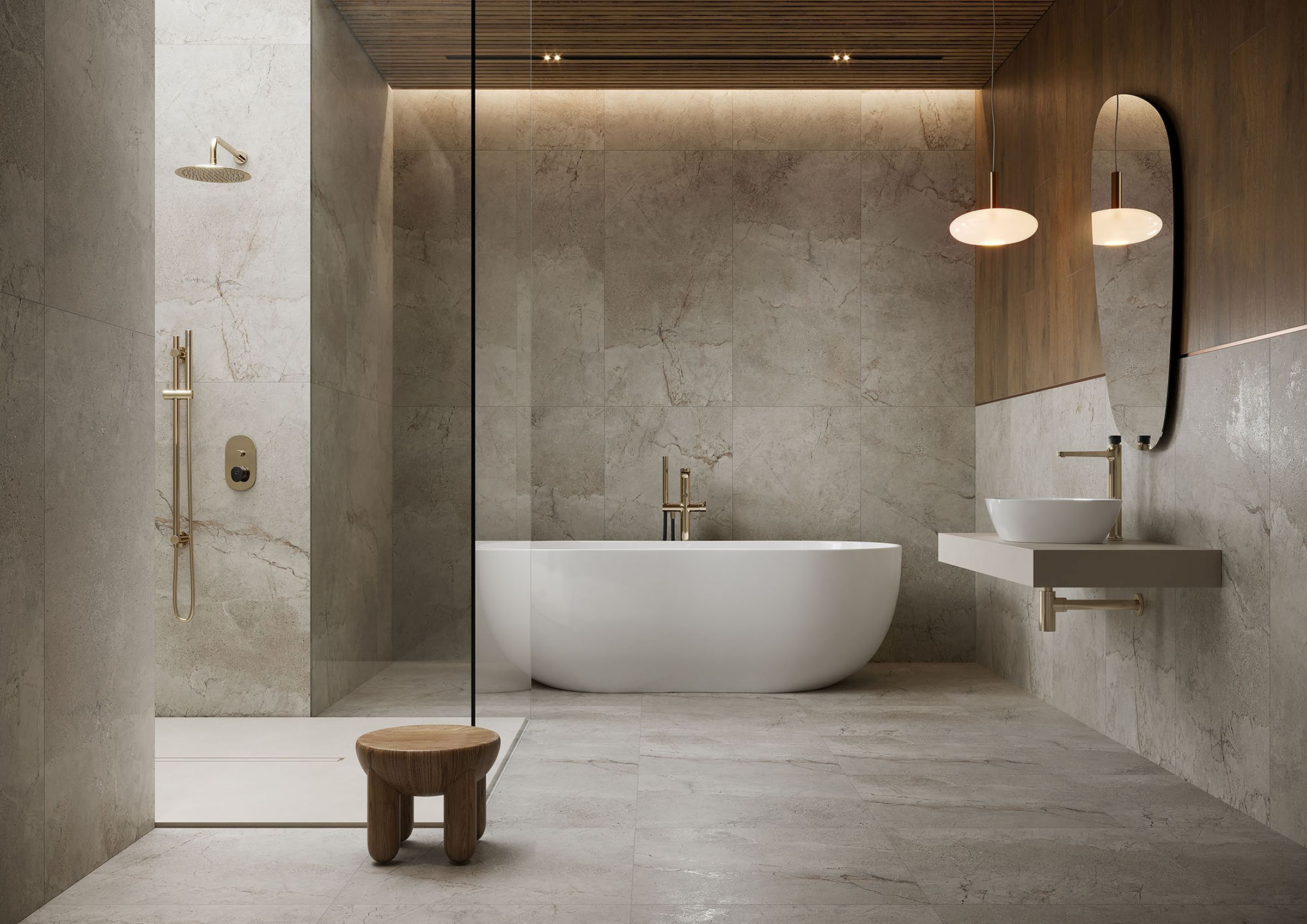
So, what’s the answer to that million pound question??
While shower panels offer convenience and easy installation, tiles provide unmatched versatility, durability, and aesthetic appeal in the bathroom. From their timeless look and ability to be customised to their superior durability and heat resistance, tiles are often the better choice for those seeking a long-term solution that adds both beauty and value to their bathroom.
Tiles might require a higher upfront investment in both materials and installation, but they repay that investment through enhanced longevity, easier repair options, and higher resale value. For homeowners looking to create a luxurious, personalised, and enduring bathroom space, tiles remain the superior and more obvious choice, in our opinion.
